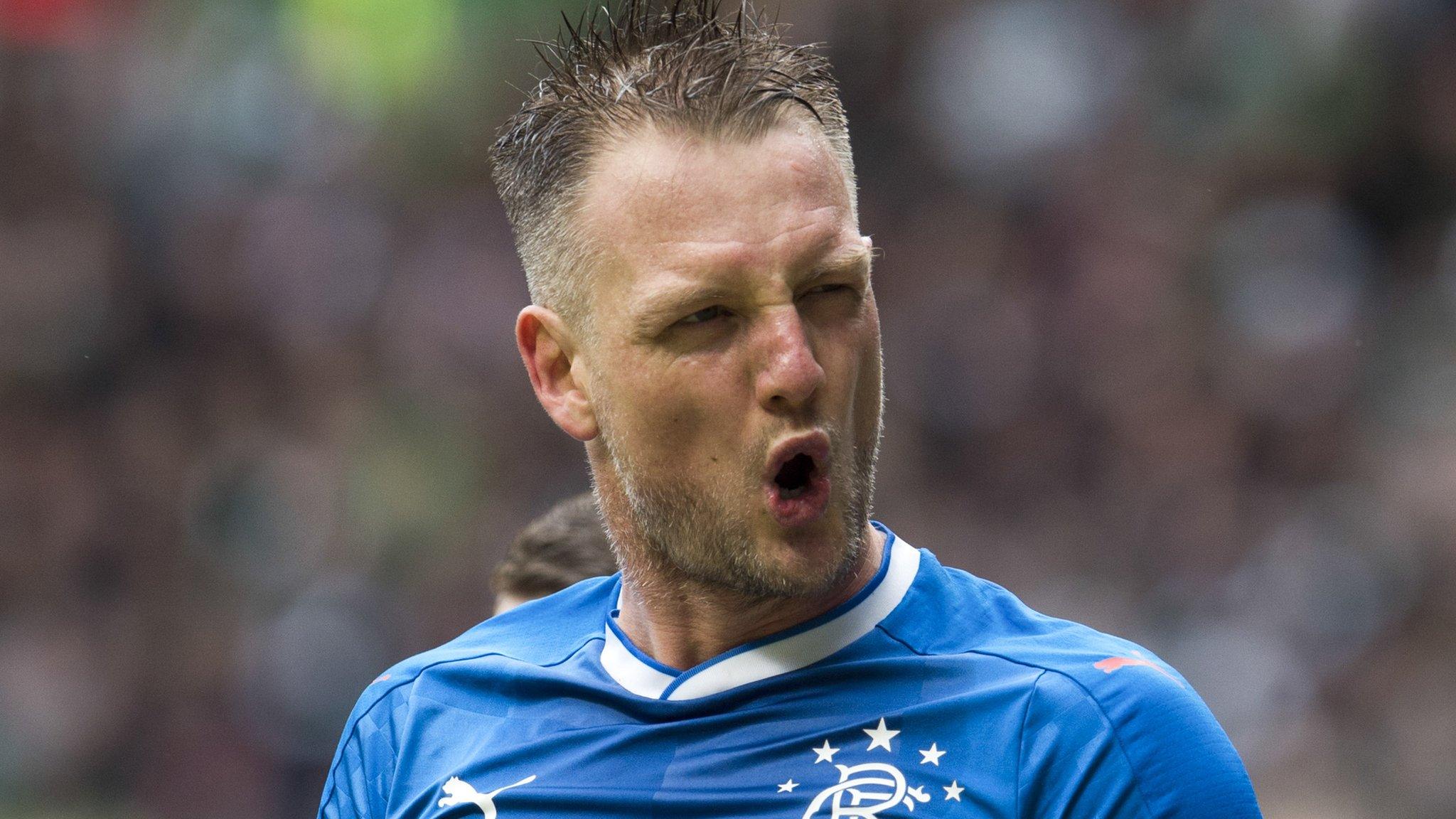Pedro Caixinha ready to face the pressures of managing Rangers
- Published
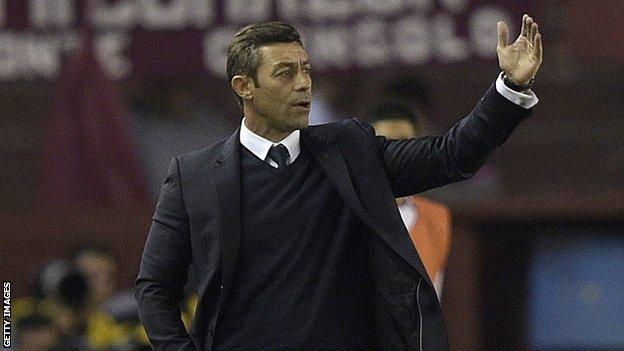
Pedro Caixinha has already targeted winning the Scottish Cup
Pedro Caixinha's story has already been pored over.
Adjusting to that level of scrutiny will be one of the challenges that the Portuguese head coach faces now that he has taken charge at Rangers.
In the days building up to his appointment, former and current players, staff and associates have all provided an element of insight into his coaching methods and personality. Caixinha has worked at big clubs before, but this experience will still be new to the 46-year-old.
He has been described as focused and thorough, and he won't be caught unawares by the demands at Ibrox; time will have been spent assessing the squad and the expectations he will be held to.
Even so, his task is not just to know them, but to cope with them. There is experience and achievement on his CV that underpins his managerial ability, but his latest appointment will test them to the full.
Tactics
Comparisons with his predecessor Mark Warburton will be inevitable. The Englishman was adamant about his team's 4-3-3 formation and structured play - overlapping full-backs, inverted wingers, attacking midfielders who didn't run beyond the forwards, limited crossing and shooting from distance - an adherence that eventually undermined his work.
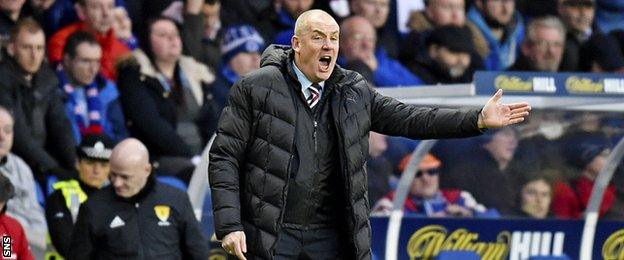
Mark Warburton was often criticised for his failure to change his side's playing style
Caixinha is less dogmatic, although his commitment has been to attacking football and a progressive style of play. It won't be proscriptive, so the goalkeeper won't be restricted to distributing only to his full-backs; pragmatism will play a role in his work.
His coaching style has been described as "aggressive", and he is demanding of his players, once remarking that he allows them "maximum freedom" but in return for them taking "maximum responsibility". He is tactically astute but versatile so that his approach is shaped by the specific challenges of the opposition.
Caixinha will seek to make Rangers an assertive side, pressing with high intensity and placing emphasis on breaking the lines of the opposition rather than possession for the sake of control.
Triple training sessions have been part of his preparatory work at pervious clubs, as well as a weekly programme based around merging physical and tactical work.
Experience
Caixinha started as a youth coach, then took charge of a local team before moving to Sporting Lisbon in 2004 as a scout and then progressing to become assistant coach.
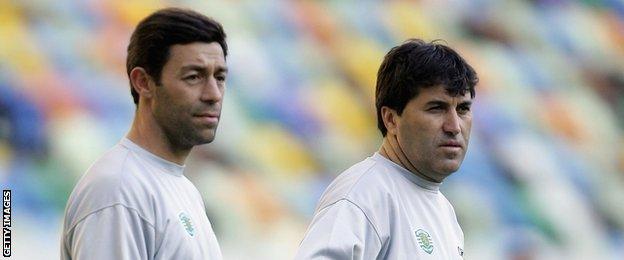
Caixinha (left) spent time as assistant to Jose Peseiro (right)
During his time working alongside head coach Jose Peseiro, Sporting reached the 2005 UEFA Cup final, only to lose 3-1 to CSKA Moscow. The pair continued to work together until 2010, a spell that encompassed stints at Al-Hilal in Saudi Arabia, Panathinaikos in Greece, Rapid Bucharest in Romania and the Saudi Arabia national team.
He returned to Portugal to become head coach of Uniao Leiria, then Nacional. It was a two-year spell at Santos Laguna in Mexico that delivered the defining spell of his managerial career so far, with Caixinha winning the 2014 Copa MX Apertura for the first time in Santos Laguna's history.
He went on to win the 2015 Liga MX Clausura (the second of the two annual Mexican championships), becoming the first European manager to win the Mexican title for 35 years, and then the 2015 Campeon de Campeones, the annual game between the winners of the two league championships - the Apertura and the Clausura.
He also guided Santos Laguna to the final of the 2013 CONCACAF Champions League - a tournament drawing teams from Central America, North America and the Caribbean. Caixinha delivered the success demanded of him at Santos Laguna, although there were also signs of an emotional character on the touchline and in press conferences, and a strained relationship at times with the game's authorities. He was once involved in an altercation with Everton player Enner Valencia when the striker was with Mexican side Pachuca.
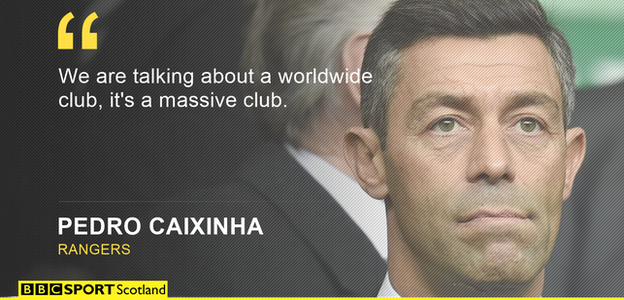
Pedro Caixinha officially took charge of Rangers on Monday
At Santos Laguna, he also reduced the average age of the squad and worked on the development of a number of young players. Caixinha left in August 2015, and joined Al-Gharafa in Qatar four months later.
Personality
Caixinha impressed Rangers' recruitment delegation with the thoroughness of his interview presentation. He is meticulous in his preparations, but there is also an emotional intensity. He is a passionate coach, and all of those qualities will be needed to adapt to the stifling scrutiny of life in charge of Rangers.
His family remained in Portugal while he worked in Qatar alongside a trusted group of coaches and fitness staff. Much has been made about his past as a bullfighter in Portugal, and a documentary filmed by Alkass Sports Channels last month contained footage of the young Caixinha diving onto his prone father to protect him from a bull.
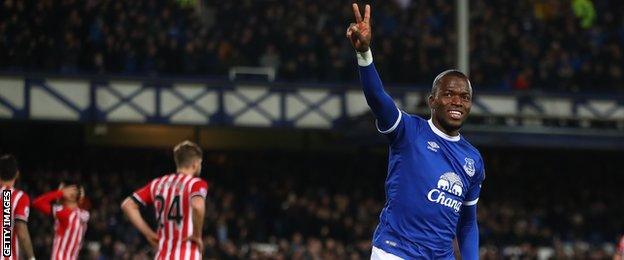
Enner Valencia was involved in an altercation with Caixhina while both were plying their trade in Mexico.
He has come to an environment that won't be tolerant of a slow or uncertain start. Caixinha has challenges to overcome as a foreign manager in Scotland, where there still exists a sense that only domestic managers can thrive, but he researched Mexican football and society thoroughly before beginning his work with Santos Laguna.
He has looked at the success of compatriots in the UK and wants to show that he can succeed. There are issues unique to Rangers - a squad that does not deliver value for the money spent on it for starters - but Caixinha has been self-confident and extremely well-informed throughout the recruitment process.
Now he has to deliver on that.
- Published13 March 2017
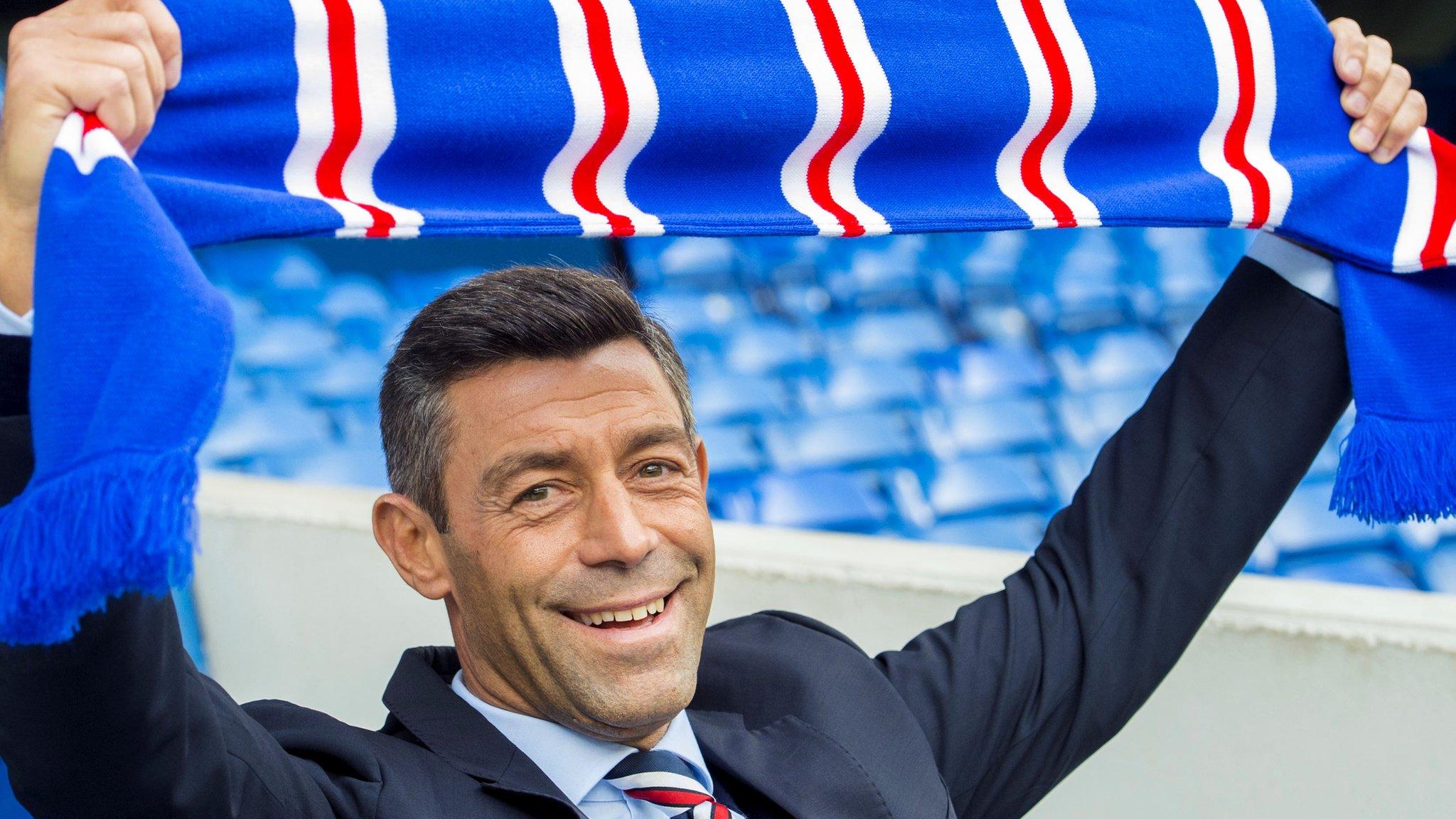
- Published13 March 2017
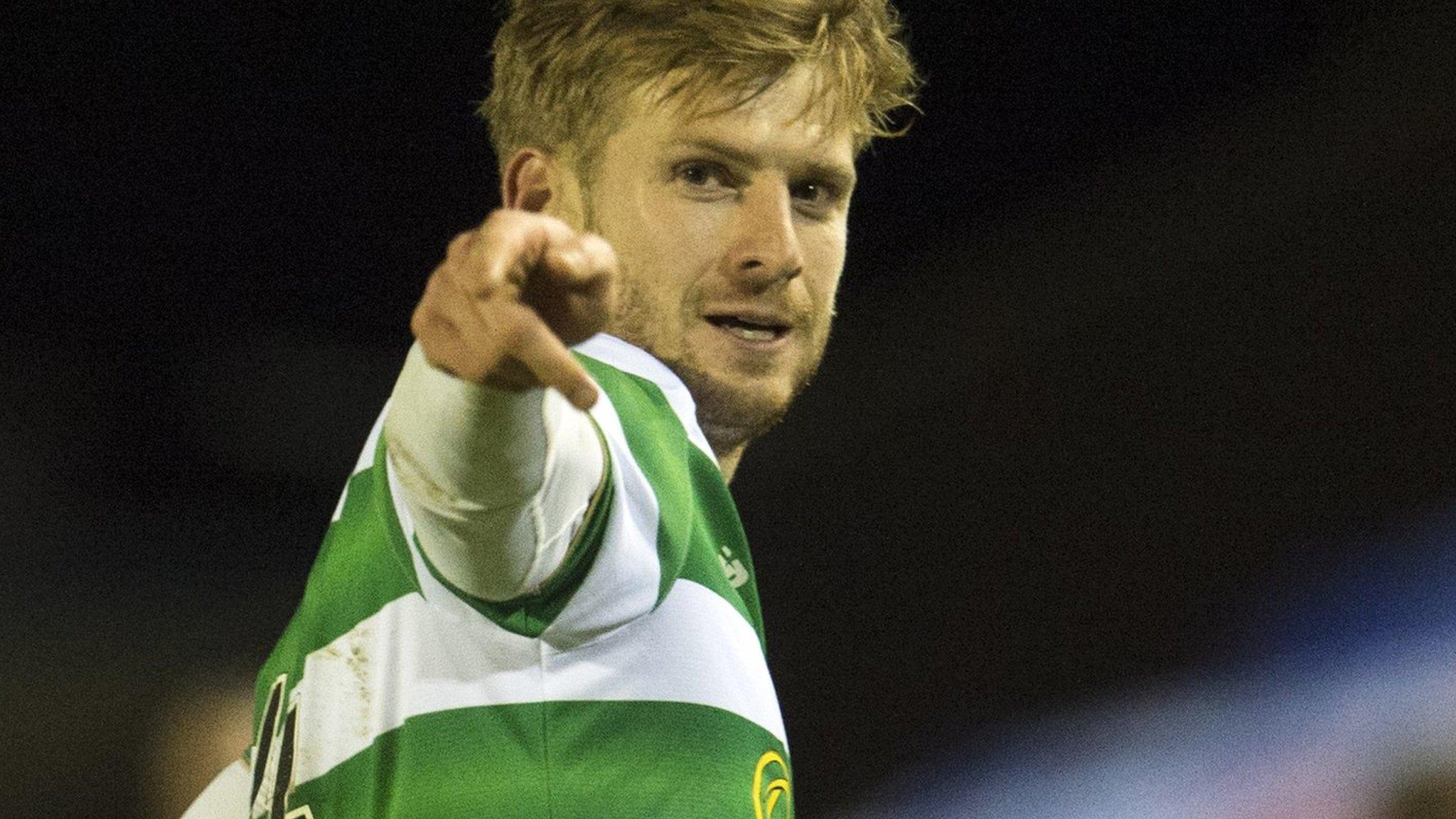
- Published13 March 2017

- Published12 March 2017
